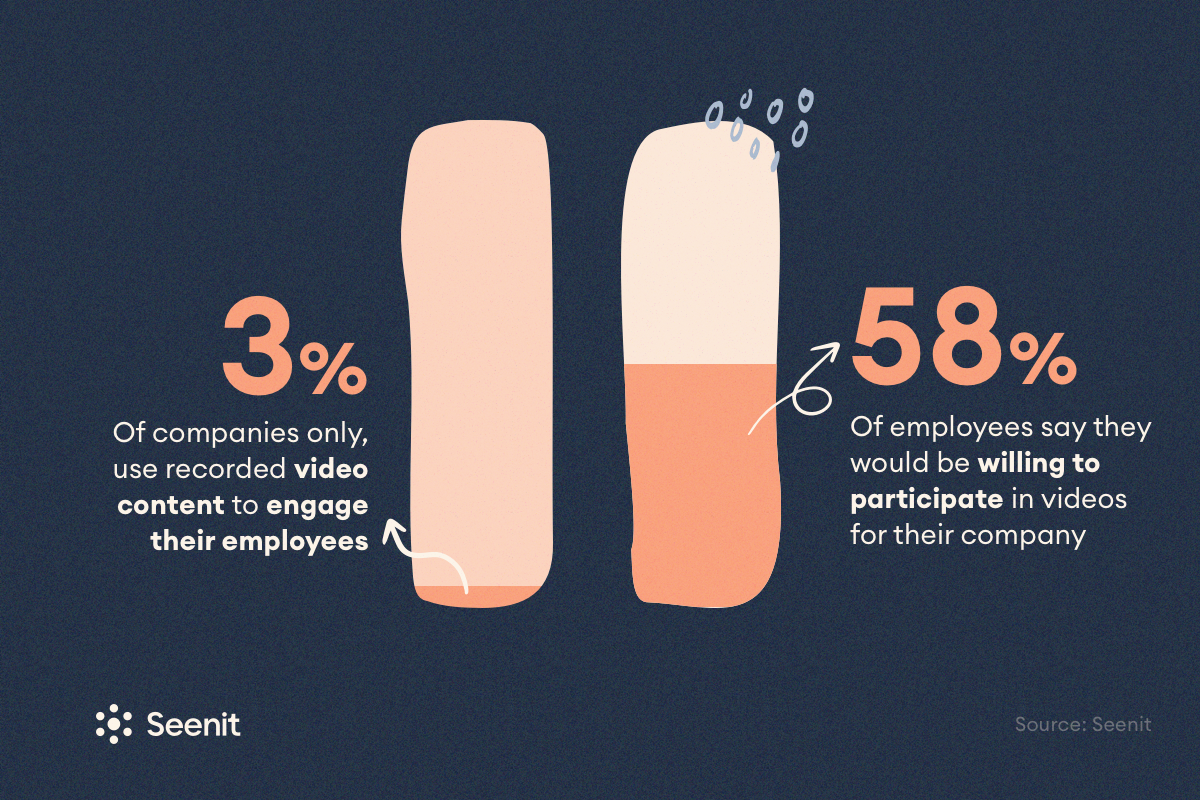What is quiet quitting?
‘Quiet quitting’ recently went viral on TikTok after @zaidleppelin posted a video introducing the idea. The term rapidly spread, filling the feeds of Reddit, LinkedIn, Instagram, Twitter… you get the idea.
According to Zain Khan, owner of the account, quiet quitting isn’t about quitting at all. It’s about letting go of “the idea of going above and beyond at work. It’s understanding that your productive output does not define your worth”.
Simply put, it’s doing the bare minimum. Instead of working after hours, volunteering to plan the office party, or taking on more responsibilities for the same pay, ‘quite quitters’ show up to their 9-5 and settling for meeting expectations.
Why are employees quiet quitting?
Hussle culture has been around a while, and issues like burnout or the great resignation have made the news repeatedly.
Employee burnout is a serious and sadly all-too-common issue. It can result in reduced engagement and productivity, a lack of energy, and feelings of isolation. But you can help avoid it within your organisation by giving employees the option of flexible hours, encouraging staff to use all their annual leave, and supporting them to make healthy choices. Ensuring managers know the signs of burnout is similar to recognising the signs of quiet quitting.
How is quiet quitting any different from burnout, you ask? Well, employees are still doing their job. They’re just disengaged from any extracurricular or projects outside the scope of their responsibilities. Quiet quitting doesn’t just start out of nowhere. The company is ultimately responsible for not engaging with its employees in the first instance.
We’ll deliver our latest content straight to your inbox
So, how do businesses support employees?
Especially in times of change, it can be challenging to replace top talent or focus on hiring extra hands to bring to the table. This is where retention should be a focus for all businesses. Quiet quitting might not be an official resignation, it comes from employees setting healthy boundaries. However, companies should keep an eye on any behaviour change and keep their best intentions at heart.
1. Don’t fight it
Work-life balance is the foundation of mental well-being at work. So there’s no reason to force employees to do more than what they’re paid to do. The more you push employees, the less they’ll give you.
One thing to keep in mind as a manager is that an employee who was once a high performer suddenly does the bare minimum does not happen at random. It’s no secret that engaged employees create more productive and meaningful teams. If an employee or team is engaged, they don’t rely on extrinsic factors such as cash or bottles of prosecco to motivate them. Engaged employees are already motivated by being passionate about their work, proud of their company, and enjoying producing quality work (source). By the same logic, an employee that is actively withdrawing from work, though still fulfilling their responsibilities, won’t be brought back by disciplinary actions. The only way to mediate the issue is to focus on fighting for real systematic change at the heart of your organisation.
2. Lean into purpose
The workplace is changing. Employees are demanding more and for a good reason. We truly believe that purpose is key to the survival of business globally. For companies to attract, retain, and engage their people, they must have a clear and lived purpose that sits at the organisation’s heart. This purpose must be weaved through the organisational tapestry, defining your vision, mission, and values. Without a clear purpose, businesses will struggle to keep hold of their people, whether they ‘quit quietly’, or for real.
Whilst free lunches and pizza parties might previously galvanise a demotivated colleague, these perks were left out in the cold over the pandemic when employees were forced to work from home. Employers ensuring their culture remained the same or even grew have retained and engaged their employees, and those that didn’t are losing their best talent at a rapid rate.
“Having a sense of purpose and a set of people that believe in it makes them more engaged. So then we get all the benefits around engagement such as greater productivity, increased sharing of ideas, and growing advocacy for your business and your brand.”
3. Engage with the disengaged
Video content is pretty much the best-kept secret to employee engagement. Live video consumption accelerated dramatically in the last two years, alongside recorded video content.. Companies and organisations started using video to communicate with their employees, customers, and the outside world. More brands moved to platforms like TikTok to engage their audience and show their products.
Only 3% of companies use recorded video content to engage their employees, but 58% of employees say they would be willing to participate in videos for their company. Plus, 53% say they are confident on camera, so what are you waiting for?

Empower your colleagues to create engaging and authentic videos to decrease attrition with Seenit, the employee-generated video platform.
It’s time for transformation
The millennials and Gen Z generations are making up a big part of the current workforce, and their expectations are as high as they should be. That being said, their happiness is as crucial as your business’ success.
Imagine a workplace culture where employees simply do what their job description says, and that is considered enough. No more going above and beyond for their companies. Though the concept is all well and good, companies will inevitably suffer from lowered productivity affecting revenue.
Now more than ever, purpose and employee engagement should be considered business critical, and organisations that do not rise to the challenge will be left behind.




